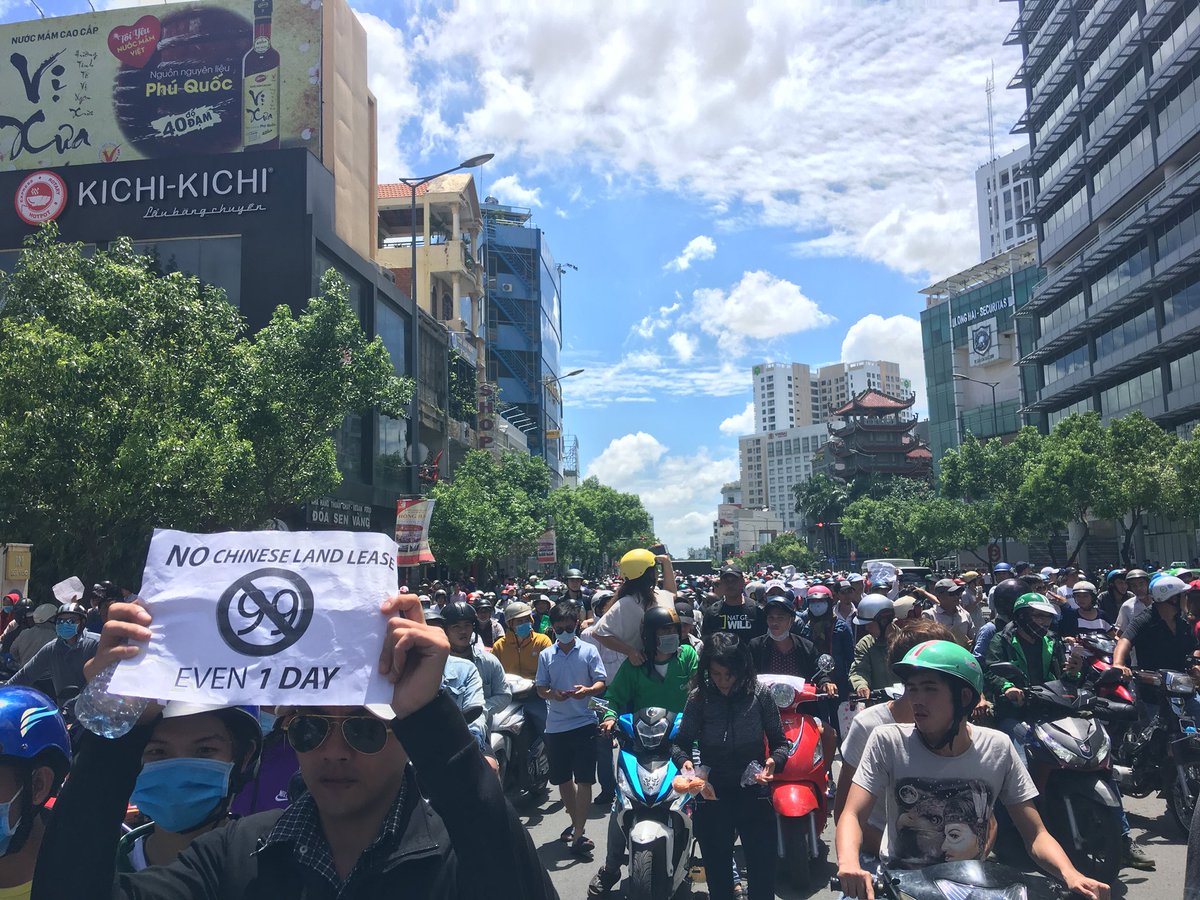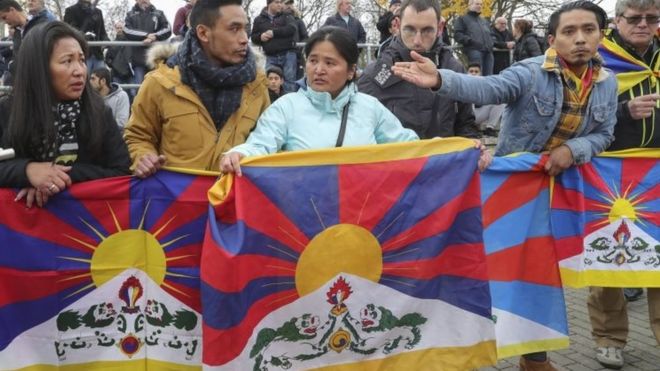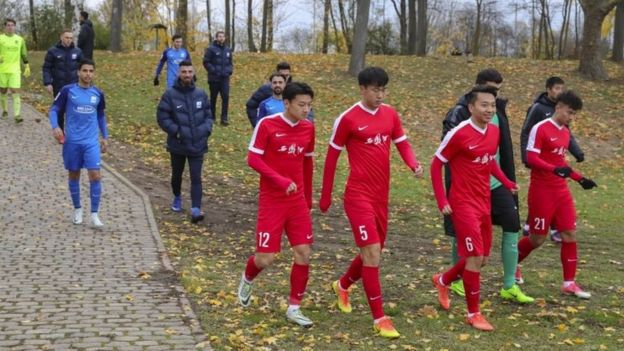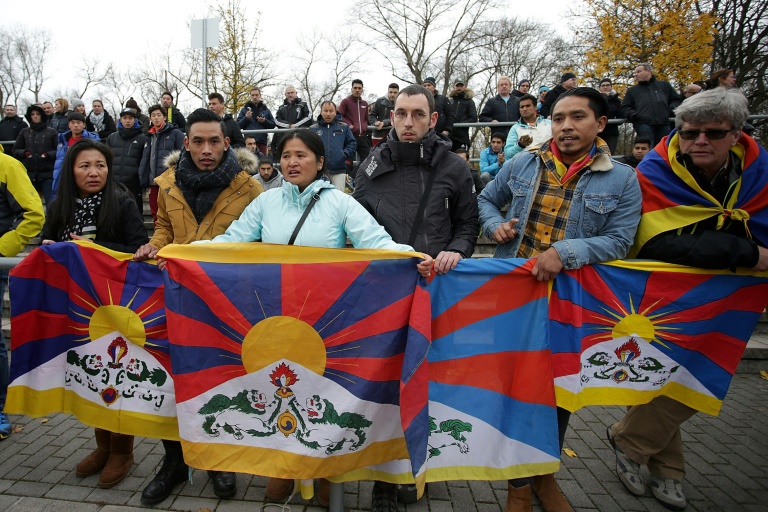By David Brunnstrom, Jeff Mason
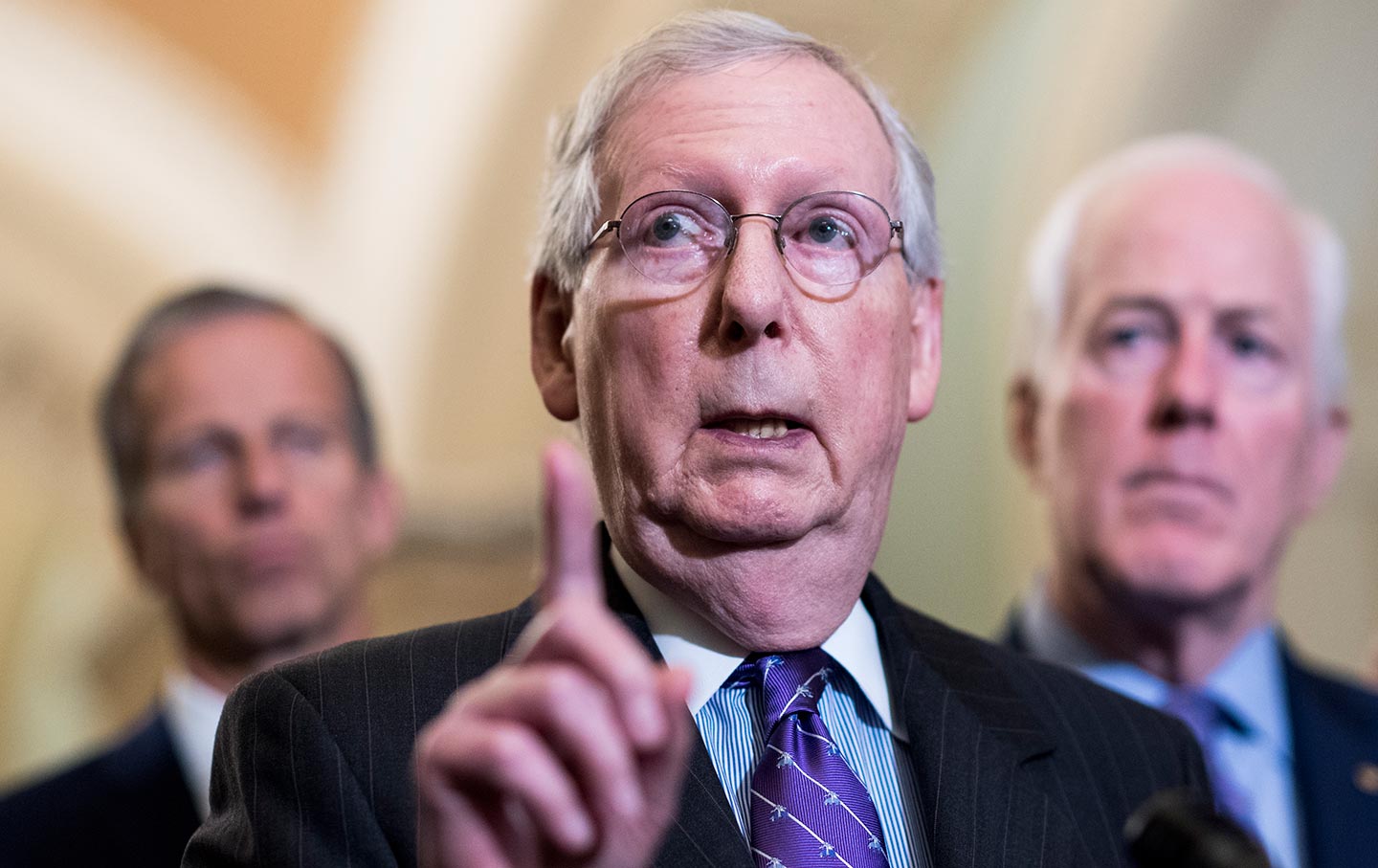
Senate Majority Leader Mitch McConnell speaks with reporters following the weekly policy luncheons on Capitol Hill in Washington, U.S., May 7, 2019.
WASHINGTON -- U.S. Senate Republican leader Mitch McConnell warned China on Monday that any violent crackdown on protests in Hong Kong would be “completely unacceptable,” while Trump administration officials urged all sides to refrain from violence.
“The people of Hong Kong are bravely standing up to the Chinese Communist Party as Beijing tries to encroach on their autonomy and freedom,” McConnell wrote in tweet.
“Any violent crackdown would be completely unacceptable. ... The world is watching.”
Increasingly violent demonstrations in Hong Kong have plunged the Chinese-ruled territory into its most serious crisis in decades, presenting Chinese dictator Xi Jinping with one of his biggest popular challenges and raising fears of direct intervention by Beijing.
Some Hong Kong legal experts say Chinese descriptions of some protesters’ actions as terrorism could lead to the use of extensive anti-terror laws and powers against them.
China’s People’s Armed Police have also assembled in the neighboring city of Shenzhen for exercises, the Chinese state-backed Global Times newspaper said.
On Tuesday, China’s state media said an unidentified official with the Foreign Ministry office in Hong Kong denounced the “arrogance and biases of some U.S. politicians”, adding that McConnell’s remarks sent protesters a “seriously mistaken signal”.
Donald Trump, who has been seeking a major deal to correct trade imbalances with China, drew criticism this month after he described the Hong Kong protests as “riots” and said they were a matter for China and Hong Kong to deal with as the territory was part of China.
On Monday a senior Trump administration official and a State Department spokeswoman urged all sides to refrain from violence, while stressing support for democracy.
The senior official reiterated Trump’s remark that it was a matter between Hong Kong and China, “with the understanding that ‘they’re looking for democracy and I think most people want democracy.’
“Societies are best served when diverse political views are respected and can be freely and peacefully expressed. The United States urges all sides to refrain from violence,” the official said, speaking on condition of anonymity.
CALL TO RESPECT AUTONOMY
A State Department spokeswoman repeated calls for Beijing to adhere to its commitments after its 1997 handover from British rule to allow Hong Kong a high degree of autonomy.
She said it was important for the Hong Kong government to respect freedoms of speech and assembly
“We condemn violence and urge all sides to exercise restraint, but remain staunch in our support for freedom of expression and freedom of peaceful assembly in Hong Kong,” she said.
“The ongoing demonstrations in Hong Kong reflect the sentiment of Hongkongers and their broad concerns about the erosion of Hong Kong’s autonomy,” she added.
“We condemn violence and urge all sides to exercise restraint, but remain staunch in our support for freedom of expression and freedom of peaceful assembly in Hong Kong,” she said.
“The ongoing demonstrations in Hong Kong reflect the sentiment of Hongkongers and their broad concerns about the erosion of Hong Kong’s autonomy,” she added.
“Freedoms of expression and peaceful assembly are core values that we share with Hong Kong; these freedoms must be vigorously protected.”
While some commentators have accused Trump of all but giving China a green light for a crackdown, Beijing has accused Washington of encouraging the protests and angrily denounced July meetings between Secretary of State Mike Pompeo and Vice President Mike Pence and Hong Kong publisher and democracy activist Jimmy Lai.
Trump has drawn criticism even from some normally supportive media.
While some commentators have accused Trump of all but giving China a green light for a crackdown, Beijing has accused Washington of encouraging the protests and angrily denounced July meetings between Secretary of State Mike Pompeo and Vice President Mike Pence and Hong Kong publisher and democracy activist Jimmy Lai.
Trump has drawn criticism even from some normally supportive media.
On Aug. 3, the conservative Washington Examiner called his Hong Kong remarks “a bizarre regurgitation of mainland Chinese propaganda” and added: “We hope this is Trump speaking off the cuff and not him selling out Hong Kong.”
On Monday, Trump’s national security adviser John Bolton told reporters on a visit to London he had talked about Hong Kong with British officials “as part of a general discussion about China.”
He rejected Chinese allegations that a U.S. diplomat was a “black hand” in the demonstrations as “ridiculous” and said it was “incumbent on the Chinese to live up to their obligations” on Hong Kong.
A spokesman for British Prime Minister Boris Johnson said earlier that Britain was concerned about the latest violence in Hong Kong and called for calm from all sides.
Last week, State Department spokeswoman Morgan Ortagus called China a “thuggish regime” for disclosing photographs and personal details of a U.S. diplomat who met with Hong Kong’s student leaders.
He rejected Chinese allegations that a U.S. diplomat was a “black hand” in the demonstrations as “ridiculous” and said it was “incumbent on the Chinese to live up to their obligations” on Hong Kong.
A spokesman for British Prime Minister Boris Johnson said earlier that Britain was concerned about the latest violence in Hong Kong and called for calm from all sides.
Last week, State Department spokeswoman Morgan Ortagus called China a “thuggish regime” for disclosing photographs and personal details of a U.S. diplomat who met with Hong Kong’s student leaders.
On Friday, she said the reports had “gone from irresponsible to dangerous” and must stop.
Hong Kong’s airport canceled all flights on Monday, blaming demonstrators for the disruptions. China said the anti-government protests that have roiled the city through two summer months had begun to show “sprouts of terrorism.”
Hong Kong’s airport canceled all flights on Monday, blaming demonstrators for the disruptions. China said the anti-government protests that have roiled the city through two summer months had begun to show “sprouts of terrorism.”
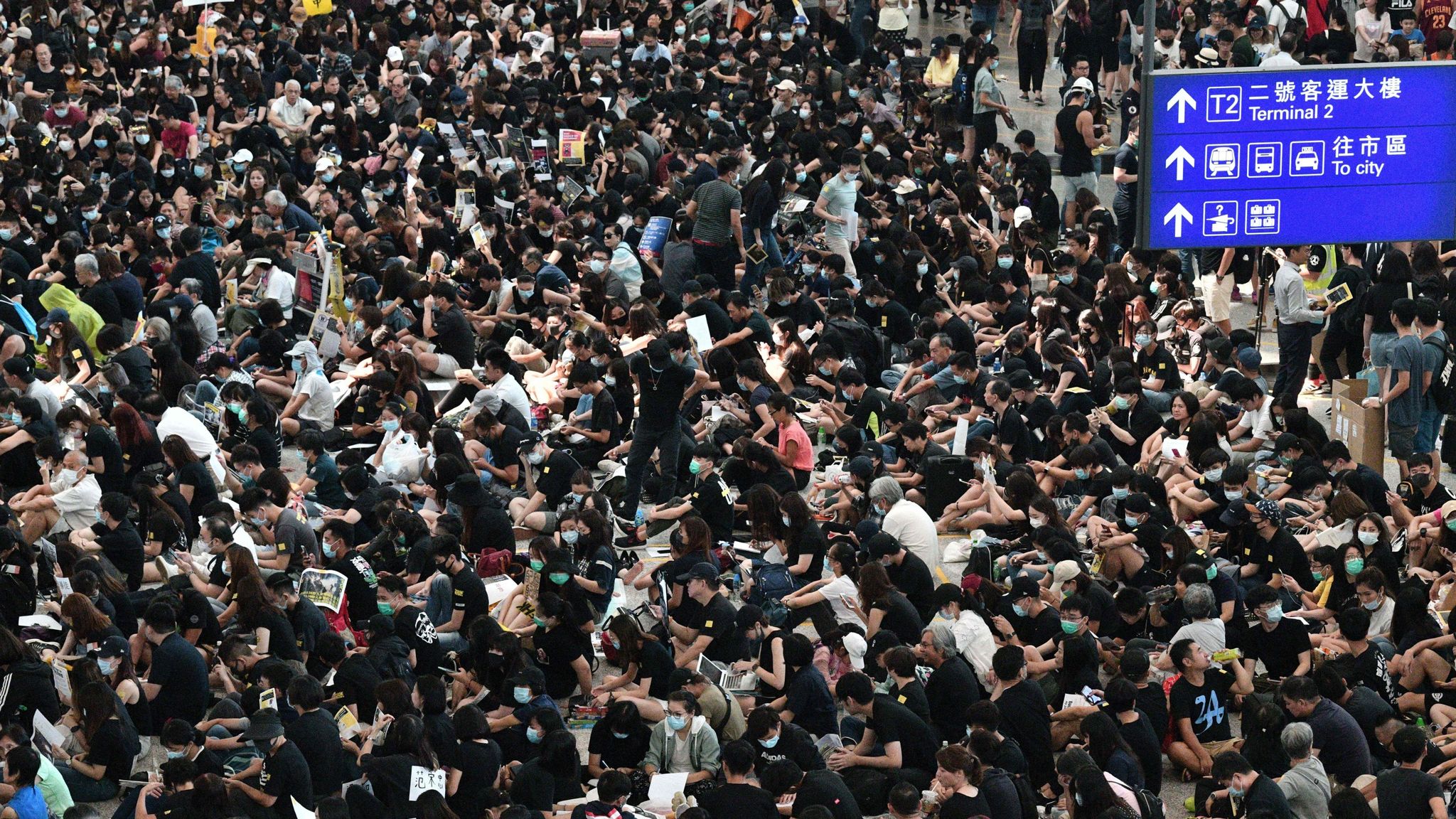
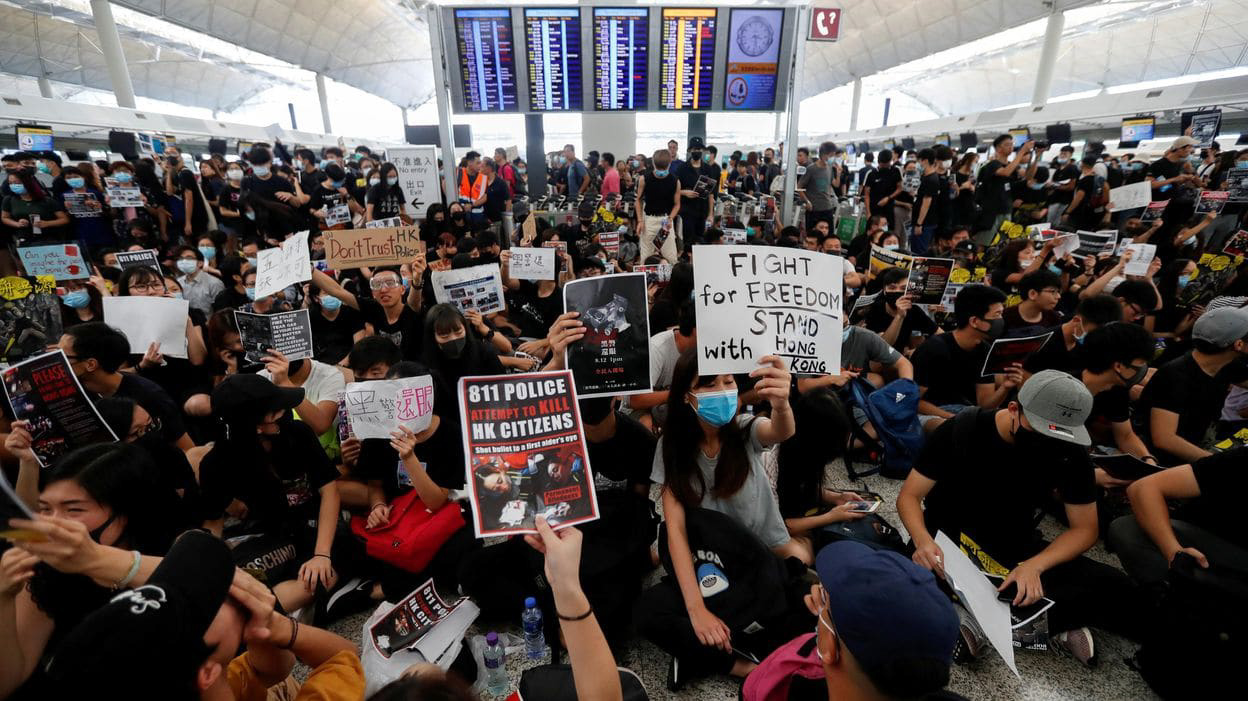





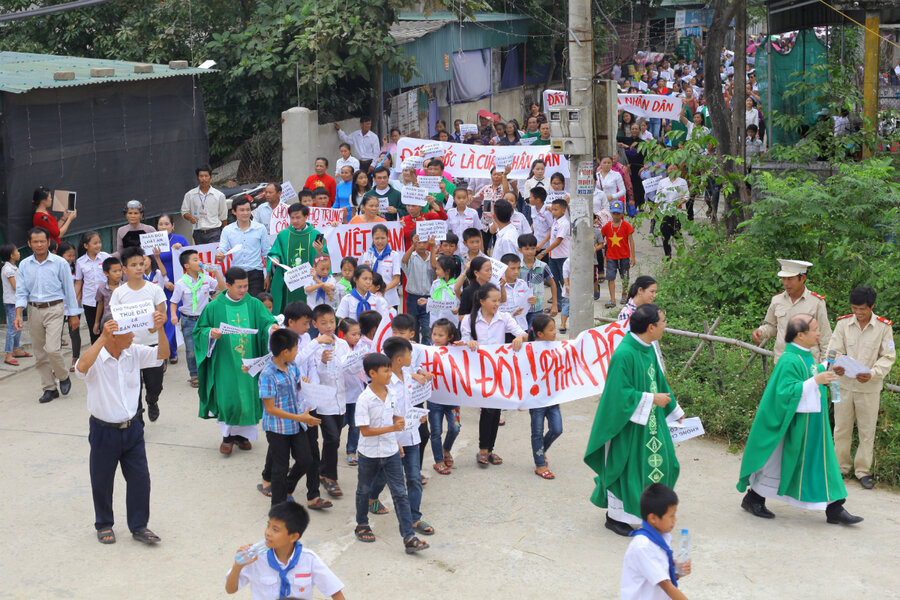

 Protesters in Saigon, Vietnam, on Sunday held banners denouncing a proposal to create special economic zones favorable to China.
Protesters in Saigon, Vietnam, on Sunday held banners denouncing a proposal to create special economic zones favorable to China. Will Nguyen, 32, of Houston, has been studying at the University of Singapore.
Will Nguyen, 32, of Houston, has been studying at the University of Singapore.